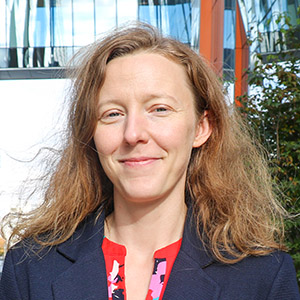Illuminating leadership during crisis
Crisis has a way of revealing things about leaders, from the lab manager to the top of the institution. In times of uncertainty, the spotlight is on them. How they react and communicate decisions (or don’t), while influenced by organizational policy and culture, tells us something about their values.

The charismatic, confident leader might make for a good business profile or biography, but contrary to popular caricatures, these characteristics don’t make an excellent leader. Literally volumes have been written to describe styles, types and characteristics of leaders good, bad and great. In this moment, I find myself looking most for the following three traits.
Transparency
Knowledge is power, yet sometimes managers hoard it, claiming that it protects employees. They don’t want an employee thinking about budget constraints or the stability of their position. In the lab, this is framed as allowing members to focus on the science. At other times, managers lack information or clarity and, worried that transparency will undermine their authority, say something with certainty they cannot possibly have or say nothing at all.These situations readily can backfire: In the absence of a compelling narrative, people willcreate their own. Leaders recognize the importance of transparency, especially in times of crisis. That’s not to say leaders disclose everythingto everyone. No work ever would get done that way, and there’s some information that a leader cannot or should not disclose (examples include legal proceedings and confidential matters). Transparency is more than a data dump. It includes contextualization: how we got the information, what it means for us, what assumptions have been made, how the organization is responding. Sharing the what and why of the things that affect your team builds trust, which can help your team grow.
Humility
In my own experience, the culture of academic science often pushes for an appearance of confidence, even to the point of arrogance. We are taught to pick apart every result presented to us, to question every claim and to defend vociferously our own work and point of view. As our scientific training advances, a tension builds between the joy of learning and openness and the demand to be self-assured and right. We are pushed to promote the importance and impact of our work and field and, implicitly or explicitly, to elevate its value — or at least the perception of its value — above others.It should come as no surprise, then, that transparency can feel risky or at the very least uncomfortable, in part because it may require admitting weaknesses, deficiencies, even mistakes. Humility requires that we recognize failures and flaws. But it also frees us from perfection. Humility empowers us to say, “I don’t know.” It keeps us from buying into our own hype. We can accept and embrace a dependence on others. They may even help us with those questions we don’t have answers for yet. It comes easier to some than others, but just like any other skill, humility can be cultivated through honestly assessing what we don’t know, genuinely listening to weird ideas and nourishing our curiosity.
Compassion
Leadership requires connection, and we often turn to empathy to relate to others. But empathy has its limits. It is short-lived and exhausting and can even be paralyzing. It can keep us from being honest with critical feedback (Kim Scott in “Radical Candor” refers to this as “ruinous empathy”). Perhaps most importantly, we tend to empathize most with those who look like us, so empathy can disrupt equity and diversity.That doesn’t remove a place for care in leadership. Now more than ever, the folks we work with need compassion. Care does not diminish the effectiveness of leadership. Compassionate leaders can transform organizations for their employees. Kim Scott suggests, from her experience and review of research, that individuals and organizations excel when managers directly challenge their employees while also caring deeply — or practicing “radical candor.” Imagining how someone must be feeling doesn’t spur action, but compassionate leaders work to remove barriers for their teams. They make space for others and seek to lead through influence rather than authority.
Maybe these aren’t the top characteristics that come to mind when you think of leaders. Yet these elements represent grounding principles from which other powerful qualities flow — clarity, flexibility, mindful presence, accountability and thoughtful delegation, among others. Crisis shines a light on the difference between management and leadership, and it’s time to broaden our vision of what leadership can be.
Enjoy reading ASBMB Today?
Become a member to receive the print edition four times a year and the digital edition monthly.
Learn moreFeatured jobs
from the ASBMB career center
Get the latest from ASBMB Today
Enter your email address, and we’ll send you a weekly email with recent articles, interviews and more.
Latest in Careers
Careers highlights or most popular articles

Defining JNKs: Targets for drug discovery
Roger Davis will receive the Bert and Natalie Vallee Award in Biomedical Science at the ASBMB Annual Meeting, March 7–10, just outside of Washington, D.C.

Upcoming opportunities
No matter where you are in your career and what future path you aspire to, everyone needs leadership skills. Join ASBMB for practical strategies for building and practicing leadership skills.

Close out ASBMB 2026 with a bang
The closing reception of the 2026 ASBMB Annual Meeting will be held at the Torpedo Factory Art Center in Alexandra, Virginia.

Redefining lipid biology from droplets to ferroptosis
James Olzmann will receive the ASBMB Avanti Award in Lipids at the ASBMB Annual Meeting, March 7–10, just outside of Washington, D.C.

Creating change in biochemistry education
Pamela Mertz will receive the ASBMB William C. Rose Award for Exemplary Contributions to Education at the ASBMB Annual Meeting, March 7-10 in Washington, D.C.

Trainee mentorship as immortality
Suzanne Barbour will receive the ASBMB Sustained Leadership Award at the ASBMB Annual Meeting, March 7-10 in Washington, D.C.

